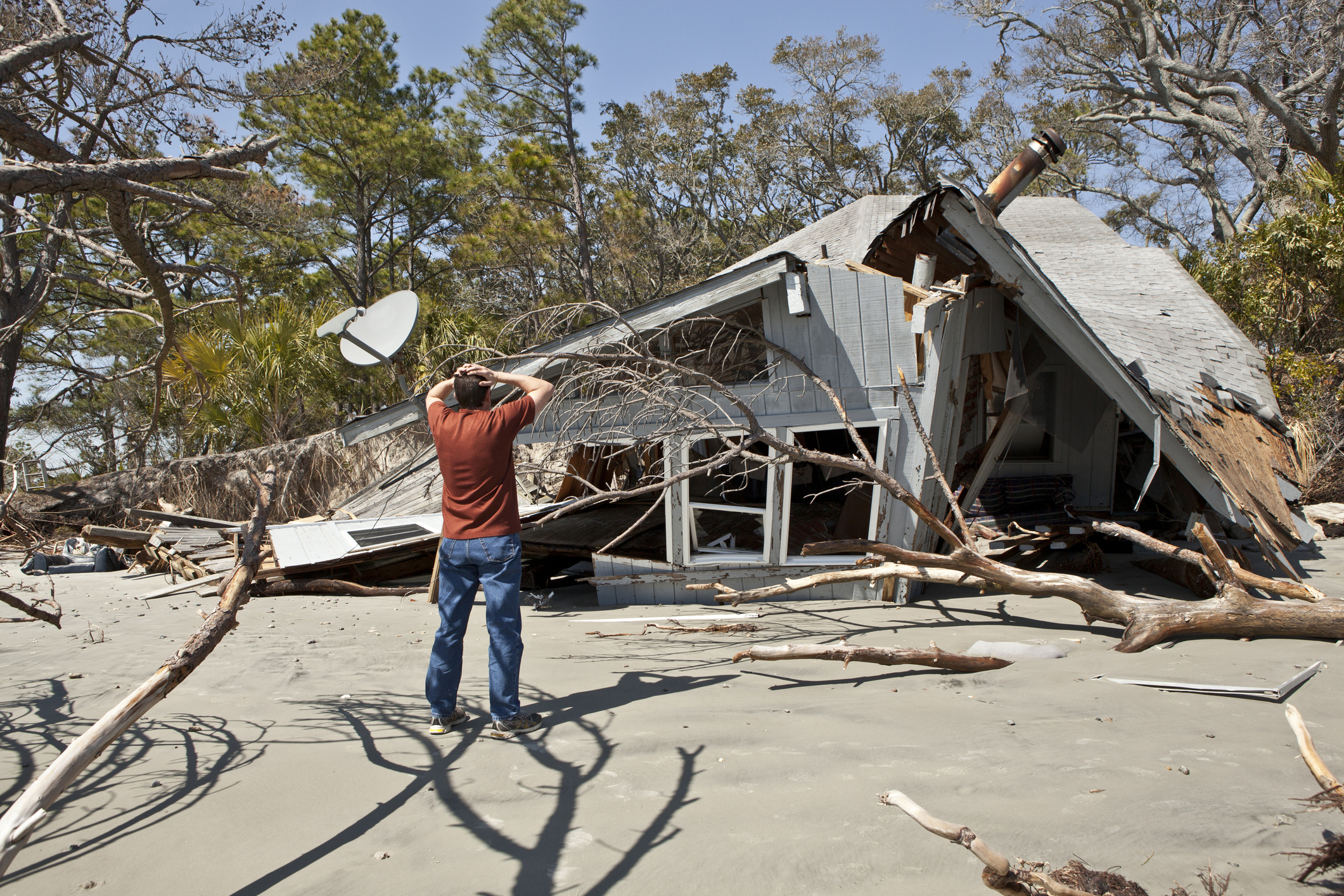Summer Camps That Teach Kids About Money
These camps offer lessons on the basics of personal finance.

Profit and prosper with the best of Kiplinger's advice on investing, taxes, retirement, personal finance and much more. Delivered daily. Enter your email in the box and click Sign Me Up.
You are now subscribed
Your newsletter sign-up was successful
Want to add more newsletters?

Delivered daily
Kiplinger Today
Profit and prosper with the best of Kiplinger's advice on investing, taxes, retirement, personal finance and much more delivered daily. Smart money moves start here.

Sent five days a week
Kiplinger A Step Ahead
Get practical help to make better financial decisions in your everyday life, from spending to savings on top deals.

Delivered daily
Kiplinger Closing Bell
Get today's biggest financial and investing headlines delivered to your inbox every day the U.S. stock market is open.

Sent twice a week
Kiplinger Adviser Intel
Financial pros across the country share best practices and fresh tactics to preserve and grow your wealth.

Delivered weekly
Kiplinger Tax Tips
Trim your federal and state tax bills with practical tax-planning and tax-cutting strategies.

Sent twice a week
Kiplinger Retirement Tips
Your twice-a-week guide to planning and enjoying a financially secure and richly rewarding retirement

Sent bimonthly.
Kiplinger Adviser Angle
Insights for advisers, wealth managers and other financial professionals.

Sent twice a week
Kiplinger Investing Weekly
Your twice-a-week roundup of promising stocks, funds, companies and industries you should consider, ones you should avoid, and why.

Sent weekly for six weeks
Kiplinger Invest for Retirement
Your step-by-step six-part series on how to invest for retirement, from devising a successful strategy to exactly which investments to choose.
Looking for a summer activity for your kids that will pay off down the road? Consider a summer camp that teaches about money and personal finance. You’ll find day camps across the country, and it’s not too late to sign up if there’s one in your area.
Two of my favorites are Camp iCare, for children ages 6 to 12, and its companion for teens ages 13 to 18, called REAL Cents REAL Change. Both are located in Auburn, Ala., under the auspices of Auburn University’s Cary Center for the Advancement of Philanthropy and Nonprofit Studies and its Department of Human Development and Family Studies Early Learning Center.
What’s noteworthy about both camps is that in addition to traditional lessons about spending and saving, wants versus needs, and debit versus credit, they teach the value of philanthropy. That doesn’t necessarily mean donating gobs of money. It does mean learning to be “financially responsible so that you can maximize what we call the four t’s: your time, talent, treasure and trust,” says Sidney James Nakhjavan, executive director of the Cary Center and the Women’s Philanthropy Board at Auburn. “What matters is not what you have but your choices in what you do with it.”
From just $107.88 $24.99 for Kiplinger Personal Finance
Become a smarter, better informed investor. Subscribe from just $107.88 $24.99, plus get up to 4 Special Issues

Sign up for Kiplinger’s Free Newsletters
Profit and prosper with the best of expert advice on investing, taxes, retirement, personal finance and more - straight to your e-mail.
Profit and prosper with the best of expert advice - straight to your e-mail.
Auburn’s camps will reach about 200 students this summer, including 70 in nearby Macon County, birthplace of Booker T. Washington and home to Tuskegee University. Nakhjavan has ambitious plans to double that number next summer. Camp iCare still has openings in its session from July 6 to 9; the fee is $160 (see the website, or call Lauren Reynolds at 334-844-3506). Note: For children younger than 13, day-camp expenses can qualify for the child-care tax credit if you pay for the camp so that you can work (see Can I Write Off My Kid’s Summer Camp?).
Other options. If you don’t happen to live in the Auburn area, you still have plenty of choices.
Junior Achievement sponsors summer camps throughout the U.S., including JA BizTown camps in Charlotte, N.C., and Indianapolis, and an entrepreneur boot camp for rising 11th and 12th graders at Virginia Commonwealth University, in Richmond. Common themes are exploring career opportunities, creating and managing a budget, running a business, and becoming involved in the community. Find a camp near you.
Camp Millionaire offers both a summer camp program and a financial education curriculum. Students learn how to make, manage, multiply and donate their money using 30 “creative wealth principles.” Among them: “Money is a tool to reach your dream.” “Pay yourself first.” “Financial success comes from managing risk, not avoiding it.” “If you can’t afford it in cash, you can’t afford it at all.” Locations include Anaheim Hills and Santa Barbara, Calif., and Edmonds, Wash.
Registration is closed for this summer, but looking ahead to next year the Young Americans Center for Financial Education, in Denver, operates “FUN-ancial” summer camps for 2nd through 6th graders.
Finally, the Montgomery County (Maryland) Public Libraries, in suburban Washington, D.C., are sponsoring a series of weeklong financial boot camps for teenagers ages 13 to 17. The camps are being presented by the Financial Literacy Organization for Women and Girls. I’ve had the pleasure of speaking at a FLOW event, and I’ve also attended one of its summer sessions. What impressed me was that so many young people were willing to give up a week of their summer vacation to learn about budgeting, credit and investing—lessons that will last a lifetime.
Profit and prosper with the best of Kiplinger's advice on investing, taxes, retirement, personal finance and much more. Delivered daily. Enter your email in the box and click Sign Me Up.

Janet Bodnar is editor-at-large of Kiplinger's Personal Finance, a position she assumed after retiring as editor of the magazine after eight years at the helm. She is a nationally recognized expert on the subjects of women and money, children's and family finances, and financial literacy. She is the author of two books, Money Smart Women and Raising Money Smart Kids. As editor-at-large, she writes two popular columns for Kiplinger, "Money Smart Women" and "Living in Retirement." Bodnar is a graduate of St. Bonaventure University and is a member of its Board of Trustees. She received her master's degree from Columbia University, where she was also a Knight-Bagehot Fellow in Business and Economics Journalism.
-
 Stocks Sink With Alphabet, Bitcoin: Stock Market Today
Stocks Sink With Alphabet, Bitcoin: Stock Market TodayA dismal round of jobs data did little to lift sentiment on Thursday.
-
 Betting on Super Bowl 2026? New IRS Tax Changes Could Cost You
Betting on Super Bowl 2026? New IRS Tax Changes Could Cost YouTaxable Income When Super Bowl LX hype fades, some fans may be surprised to learn that sports betting tax rules have shifted.
-
 How Much It Costs to Host a Super Bowl Party in 2026
How Much It Costs to Host a Super Bowl Party in 2026Hosting a Super Bowl party in 2026 could cost you. Here's a breakdown of food, drink and entertainment costs — plus ways to save.
-
 Smart Strategies for Paying Your Child an Allowance
Smart Strategies for Paying Your Child an AllowanceBy giving your kids money to spend and save, you’ll help them sharpen their financial skills at an early age.
-
 Is Home Insurance Required? Not Necessarily, But That Doesn't Mean You Should Drop It
Is Home Insurance Required? Not Necessarily, But That Doesn't Mean You Should Drop ItHome insurance is required by most mortgage lenders. But even if your home is paid off, does it make financial sense to drop coverage?
-
 5 Ways to Shop for a Low Mortgage Rate
5 Ways to Shop for a Low Mortgage RateBecoming a Homeowner Mortgage rates are high this year, but you can still find an affordable loan with these tips.
-
 Bond Basics: U.S. Savings Bonds
Bond Basics: U.S. Savings Bondsinvesting U.S. savings bonds are a tax-advantaged way to save for higher education.
-
 Hurricane Insurance Claims: 10 Things You Need to Know
Hurricane Insurance Claims: 10 Things You Need to KnowBecoming a Homeowner Hurricane damage? Know what your insurance will and won't cover to make the most of your policy if you need to file a claim.
-
 Bond Basics: Ownership
Bond Basics: Ownershipinvesting Bonds come in a variety of forms, but they all share these basic traits.
-
 5 Great Places to Buy a Vacation Home
5 Great Places to Buy a Vacation HomeWant a vacation home for remote work or a fun getaway? Here are locations with median prices under $500K.
-
 How to Help Your Children Buy a Home
How to Help Your Children Buy a HomeFamily Finances If you want to help your children buy a home your options range from family loans to outright gifts.